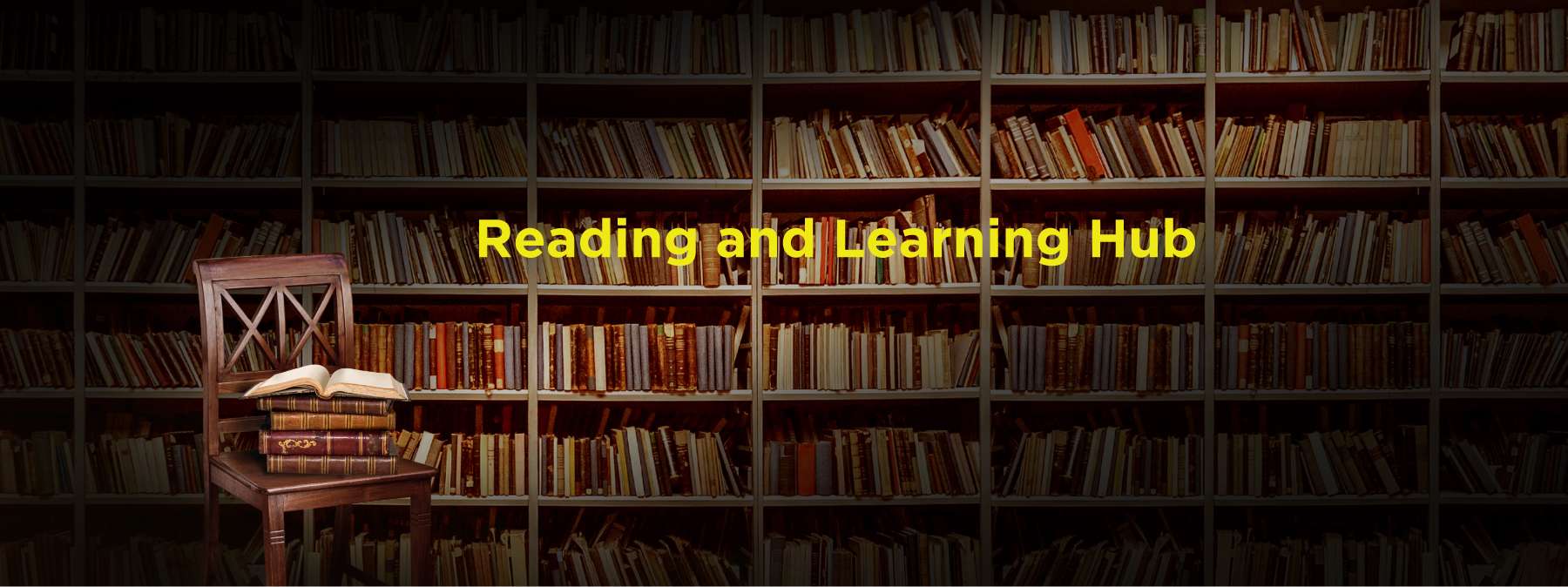
READ, in the name of your Sustainer who has created - created humankind out of a germ-cell! - READ, for your Sustainer is the Most Bountiful One - who has taught the use of the pen - taught humankind what it did not know
Quran 96: 1 - 5
Quran 96: 1 - 5
This is a curated list of books we recommend on a range of important subjects. We have put together a range of texts and resources in each of the categories below to help support your understanding and critical engagement with the religion.
Please note: these books, videos and resources do not necessarily reflect the opinion and position of members of the Muslim Collective. They are intended for exploration of ideas and not as position statements.
Please note: these books, videos and resources do not necessarily reflect the opinion and position of members of the Muslim Collective. They are intended for exploration of ideas and not as position statements.
Browse By Category
Progressive Islam
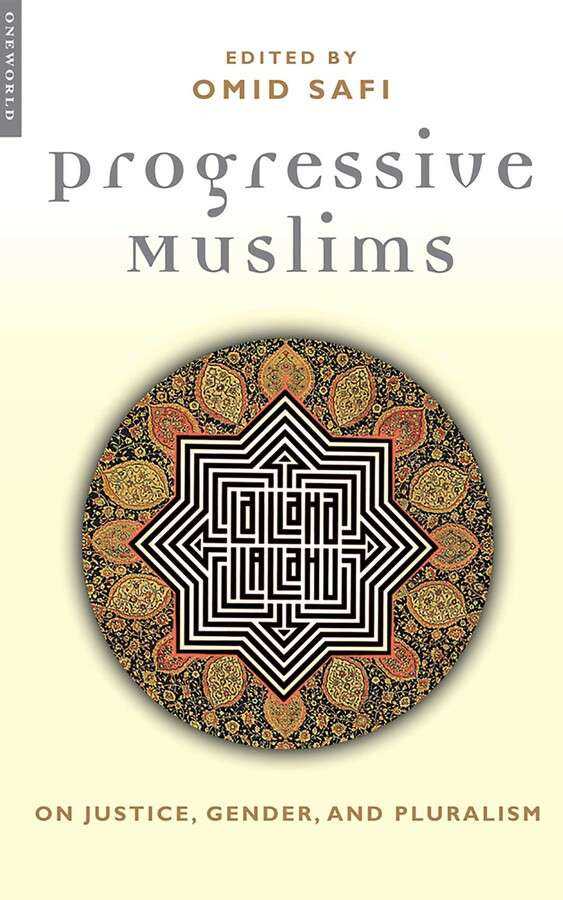
PROGRESSIVE MUSLIMS : ON JUSTICE, GENDER, AND PLURALISM
(Edited by Omid Safi)
Developed in response to the events of September 11 2001, these 14 articles from prominent Muslim thinkers offer a provocative reassessment of Islam's relationship with the modern world. Confronting issues such as racism, justice, sexuality and gender, this book reveals the real challenges faced by Muslims of both sexes in contemporary Western society. A probing, frank, and intellectually refreshing testament to the capacity of Islam for renewal, change, and growth, these articles from fifteen Muslim scholars and activists address the challenging and complex issues that confront Muslims today. Avoiding fundamentalist and apologetic approaches, the book concentrates on the key areas of debate in progressive Islamic thought: "Contemporary Islam," "Gender Justice," and "Pluralism."
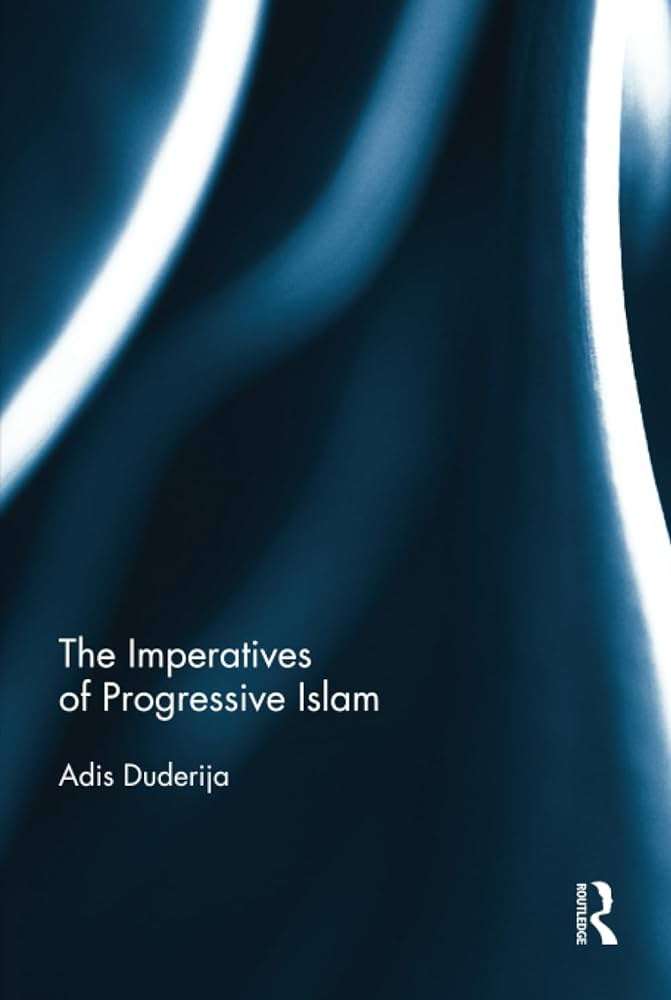
THE IMPERATIVES OF PROGRESSIVE ISLAM
(by Adis Duderjia)
With the proliferation of transnational Muslim networks over the last two decades, the religious authority of traditionally educated Muslim scholars, the uluma, has come under increasing scrutiny and disruption. These networks have provided a public space for multiple perspectives on Islam to be voiced, allowing "progressive" Islamic worldviews to flourish alongside more (neo)traditional outlooks. This book brings together the scholarship of leading progressive Muslim scholars, incorporating issues pertaining to politics, jurisprudence, ethics, theology, epistemology, gender and hermeneutics in the Islamic tradition. It provides a comprehensive discussion of the normative imperatives behind a progressive Muslim thought, as well as outlining its various values and aims. Presenting this emerging and distinctive school of Islamic thought in an engaging and scholarly manner, this is essential reading for any academic interested in contemporary religious thought and the development of modern Islam.
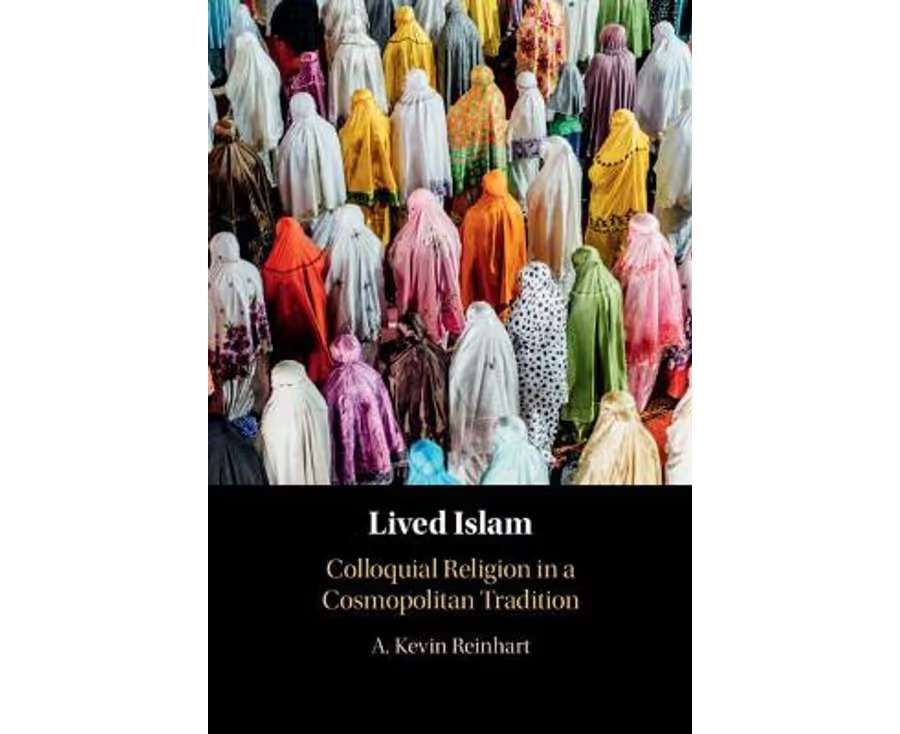
LIVED ISLAM: COLLOQUIAL RELIGION IN A COSMOPOLITAN TRADITION
(By A. Kevin Reinhart)
Does Islam make people violent? Does Islam make people peaceful? In this book, A. Kevin Reinhart demonstrates that such questions are misleading, because they assume that Islam is a monolithic essence and that Muslims are made the way they are by this monolith. He argues that Islam, like all religions, is complex and thus best understood through analogy with language: Islam has dialects, a set of features shared with other versions of Islam. It also has cosmopolitan elites who prescribe how Islam ought to be, even though these experts, depending on where they practice the religion, unconsciously reflect their own local dialects. Reinhart defines the distinctive features of Islam and investigates how modernity has created new conditions for the religion. Analyzing the similarities and differences between modern and pre-modern Islam, he clarifies the new and old in the religion as it is lived in the contemporary world.
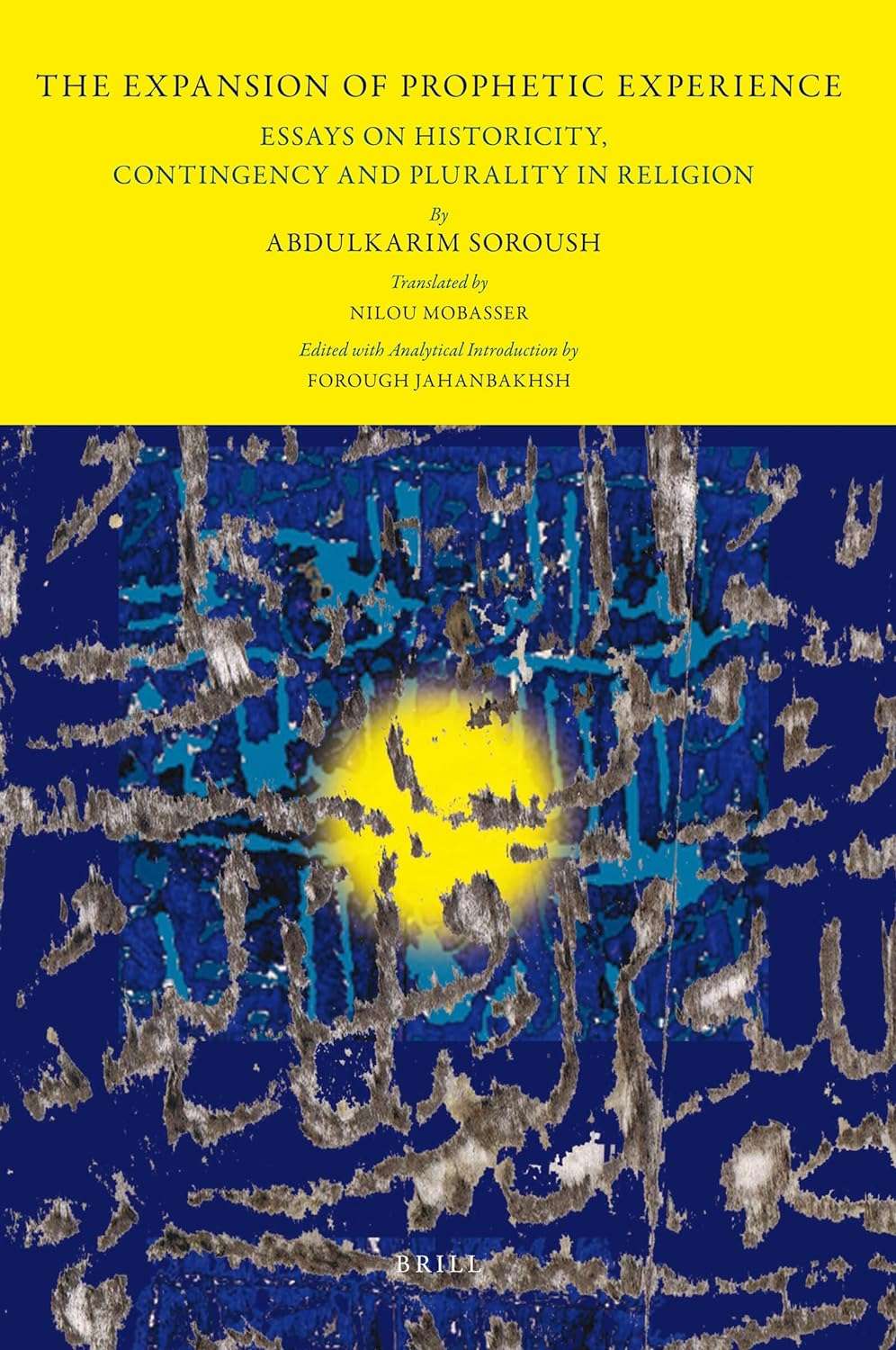
THE EXPANSION OF PROPHETIC EXPERIENCE: ESSAYS ON HISTORICITY, CONTINGENCY AND PLURALITY IN RELIGION
By Abdolkarim Soroush, Nilou Mobasser (transl.), Forough Jahanbakhsh (ed.)
Abdulkarim Soroush is known primarily for his epistemological/hermeneutical theory, the “Contraction and Expansion of Religious Knowledge,” and its application to Islamic political theory and religious pluralism. While his Reason, Freedom and Democracy in Islam applies that theory to plurality and the historicity of understanding and interpretation of religion, this book captures some of his original theories about religion itself. The Expansion of Prophetic Experience treats the historicity of the Prophet Muhammad’s revelatory experience, including human and contextual influences on the genesis of the sacred Text. It presents substantial aspects of Soroush’s Neo-Rationalist hermeneutical project for an Islamic reformed theology and ethics, systematically leading Islamic reformation beyond conventional projects of piecemeal adjustments to the Shariʿah or selective re-interpretations of the Qurʾān.
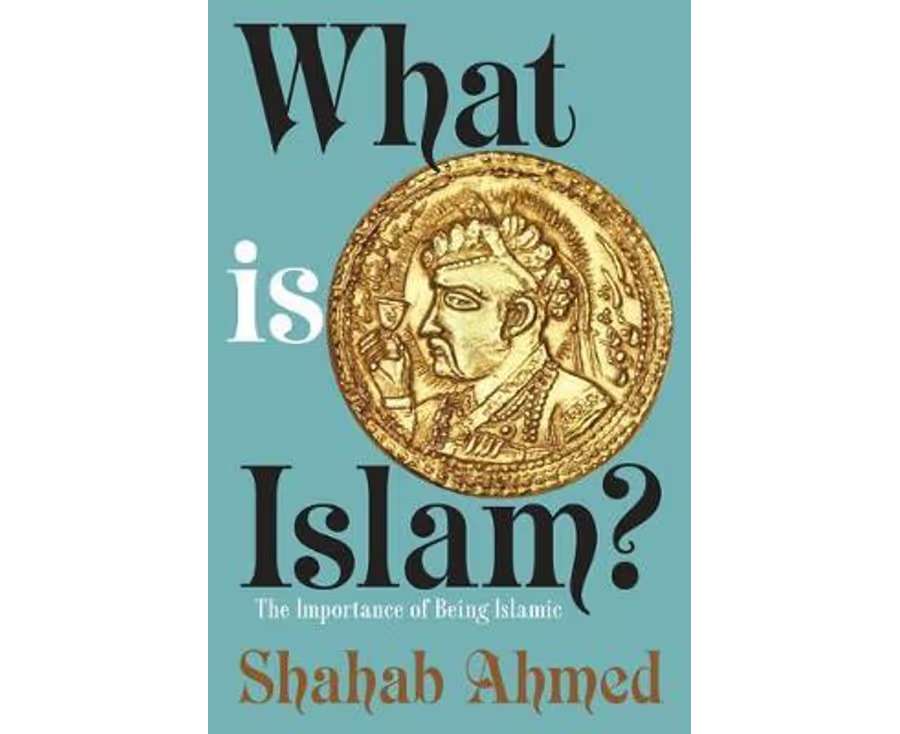
WHAT IS ISLAM? THE IMPORTANCE OF BEING ISLAMIC
(By Shahab Ahmed)
In What Is Islam?, Shahab Ahmed presents a bold new conceptualization of Islam that challenges dominant understandings grounded in the categories of “religion” and “culture” or those that privilege law and scripture. He argues that these modes of thinking obstruct us from understanding Islam, distorting it, diminishing it, and rendering it incoherent.
What Is Islam? formulates a new conceptual language for analyzing Islam. It presents a new paradigm of how Muslims have historically understood divine revelation—one that enables us to understand how and why Muslims through history have embraced values such as exploration, ambiguity, aestheticization, polyvalence, and relativism, as well as practices such as figural art, music, and even wine drinking as Islamic. It also puts forward a new understanding of the historical constitution of Islamic law and its relationship to philosophical ethics and political theory.
What Is Islam? formulates a new conceptual language for analyzing Islam. It presents a new paradigm of how Muslims have historically understood divine revelation—one that enables us to understand how and why Muslims through history have embraced values such as exploration, ambiguity, aestheticization, polyvalence, and relativism, as well as practices such as figural art, music, and even wine drinking as Islamic. It also puts forward a new understanding of the historical constitution of Islamic law and its relationship to philosophical ethics and political theory.
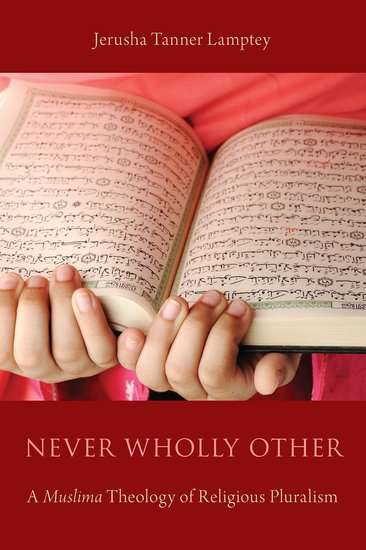
NEVER WHOLLY OTHER: A MUSLIMA THEOLOGY OF RELIGIOUS PLURALISM
(By Jerusha Tanner Lamptey)
How does the Qur'an depict the religious Other? Historically, this question has provoked extensive debate among Islamic scholars about the identity, nature, and status of such religious Others. Today, this debate assumes great importance because of the widening experience of religious plurality, which prompts inquiry into convergences and divergences in belief and practice as well as controversy over the appropriate forms of interaction among different religions. The persistence of religious violence also gives rise to difficult questions about the relationship between the depiction of religious Others, and intolerance and oppression. Scholars have traditionally accounted for the coexistence of religious similarity and difference by resorting either to models that depict religions as isolated entities or models that arrange religions in a static, evaluative hierarchy. In response to the limitations of this discourse, Jerusha Tanner Lamptey constructs an alternative conceptual and hermeneutical approach that draws insights from the work of Muslim women interpreters of the Qur'an, feminist theology, and semantic analysis. She employs this approach to reevaluate, reinterpret, and reenvision the Qur'anic discourse on religious difference. Through a close reading of the Qur'anic text, she distinguishes between two forms of religious difference: hierarchical and lateral. She goes on to explore the complex relationality that exists among Qur'anic concepts of hierarchical religious difference and to articulate a new, integrated model of religious pluralism.Using an interdisciplinary approach to confront existing Islamic scholarship, Lamptey's Never Wholly Other offers a new genre of theology.
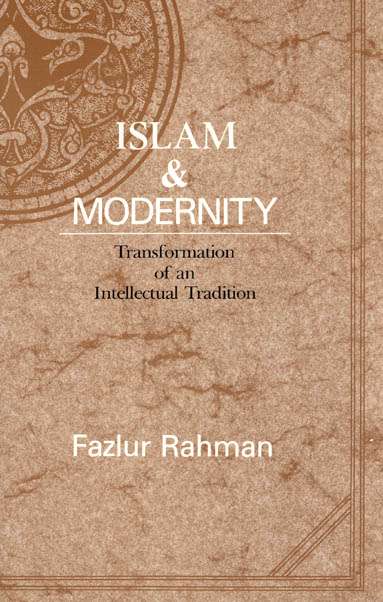
ISLAM AND MODERNITY: TRANSFORMATION OF AN INTELLECTUAL TRADITION
(By Fazlur Rahman)
Fazlur Rahman was one of the great 20th-century Muslim modernists, whose prolific writing and sheer number of students who make up a who's who of Islamic studies throughout North America reveal the impact that he has had on both academe and on Muslim communities throughout the world.
The modernist approach is contrasted with the radical approach of Mawlana Mawdudi of Pakistan. The comparison is made richer by the fact that the two men knew each other personally. The need to contrast the Islamic views presented by Fazlur Rahman with those espoused by Al-Quaida are critical to avoid stereotyping the worldwide Muslim community.
The modernist approach is contrasted with the radical approach of Mawlana Mawdudi of Pakistan. The comparison is made richer by the fact that the two men knew each other personally. The need to contrast the Islamic views presented by Fazlur Rahman with those espoused by Al-Quaida are critical to avoid stereotyping the worldwide Muslim community.
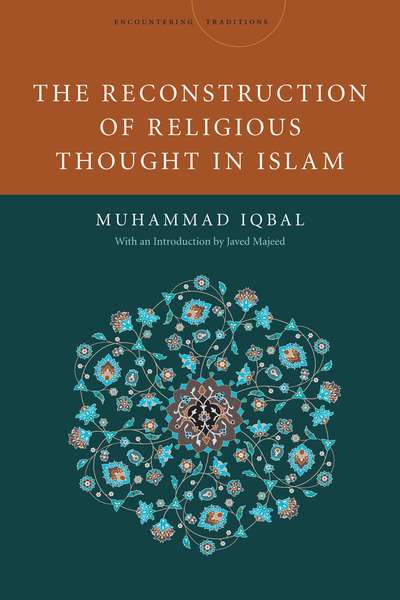
THE RECONSTRUCTION OF RELIGIOUS THOUGHT IN ISLAM
(By Muhammad Iqbal)
The Reconstruction of Religious Thought in Islam (1930) is Muhammad Iqbal's major philosophic work: a series of profound reflections on the perennial conflict among science, religion, and philosophy, culminating in new visions of the unity of human knowledge, of the human spirit, and of God. Iqbal's thought contributed significantly to the establishment of Pakistan, to the religious and political ideals of the Iranian Revolution, and to the survival of Muslim identity in parts of the former USSR. It now serves as new bridge between East and West and between Islam and the other Religions of the Book. With a new Introduction by Javed Majeed, this edition of The Reconstruction opens the teachings of Iqbal to the modern, Western reader. It will be essential reading for all those interested in Islamic intellectual history, the renewal of Islam in the modern world, and political theory of Islam's relationship to the West.
PROPHET MUHAMMAD

MUHAMMAD: HIS LIFE BASED ON THE EARLIEST SOURCES
By Martin Lings
Martin Lings' biography of Muhammad is an internationally acclaimed, comprehensive, and authoritative account of the life of the prophet. Based on the sira, the eighth- and ninth-century Arabic biographies that recount numerous events in the prophet's life, it contains original English translations of many important passages that reveal the words of men and women who heard Muhammad speak and witnessed the events of his life.
Scrupulous and exhaustive in its fidelity to its sources, Muhammad: His Life Based on the Earliest Sources is presented in a narrative style that is easily comprehensible, yet authentic and inspiring in its use of language, reflecting both the simplicity and grandeur of the story it tells.
Scrupulous and exhaustive in its fidelity to its sources, Muhammad: His Life Based on the Earliest Sources is presented in a narrative style that is easily comprehensible, yet authentic and inspiring in its use of language, reflecting both the simplicity and grandeur of the story it tells.
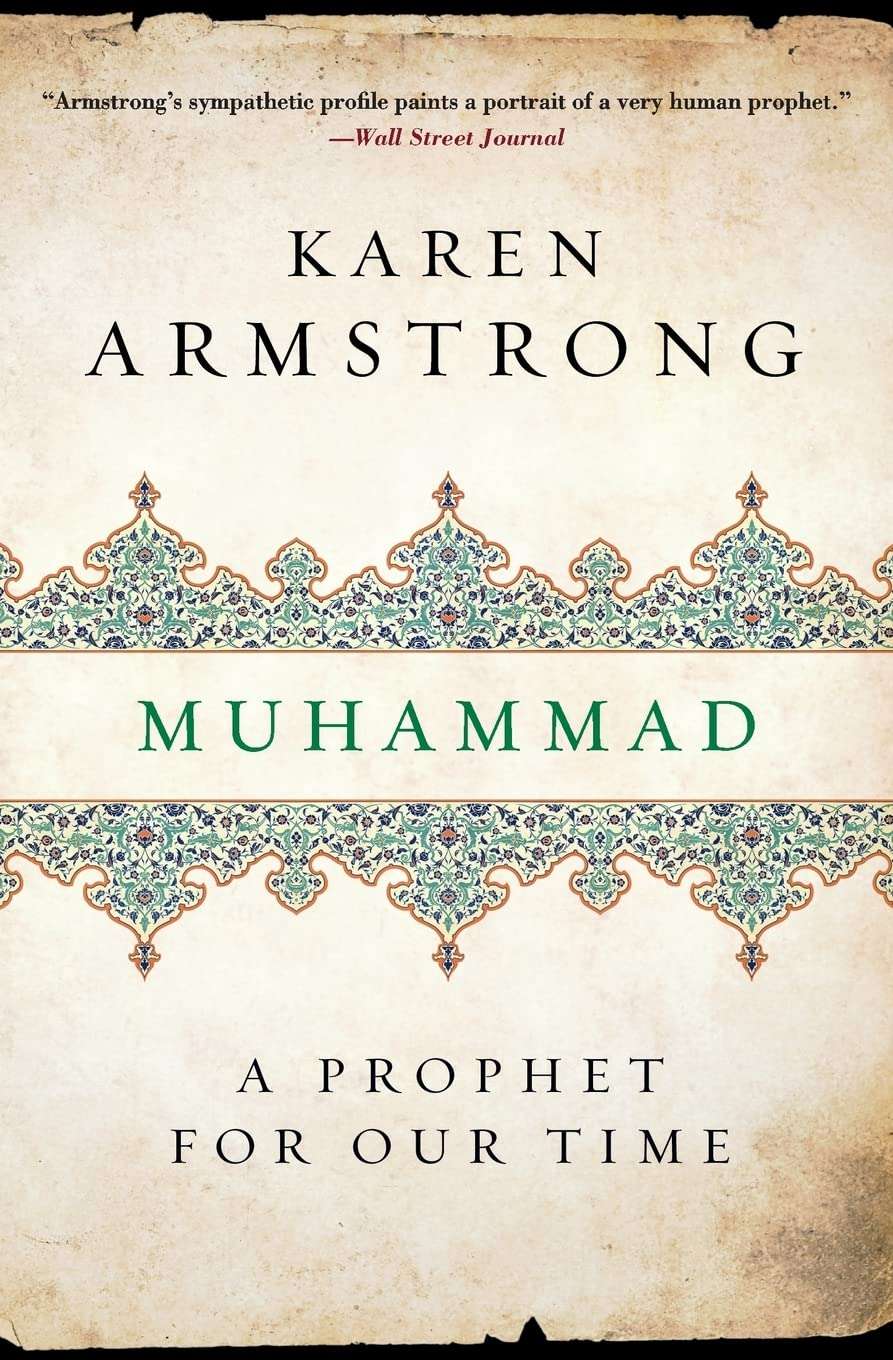
MUHAMMAD: A PROPHET FOR OUR TIME
By Karen Armstrong
Muhammad presents a fascinating portrait of the founder of a religion that continues to change the course of world history. Muhammad's story is more relevant than ever because it offers crucial insight into the true origins of an increasingly radicalized Islam. Countering those who dismiss Islam as fanatical and violent, Armstrong offers a clear, accessible, and balanced portrait of the central figure of one of the world's great religions.
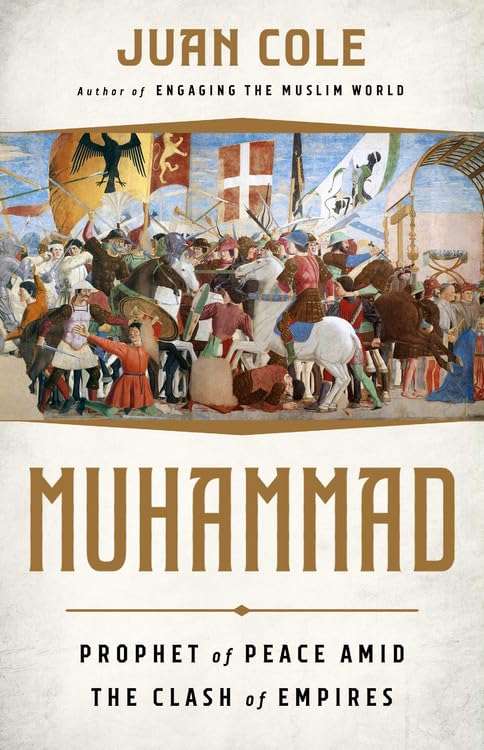
MUHAMMAD: PROPHET OF PEACE AMID THE CLASH OF EMPIRES
By Juan Cole
In the midst of the dramatic seventh-century war between two empires, Muhammad was a spiritual seeker in search of community and sanctuary.Many observers stereotype Islam and its scripture as inherently extreme or violent-a narrative that has overshadowed the truth of its roots. In this masterfully told account, preeminent Middle-East expert Juan Cole takes us back to Islam's-and the Prophet Muhammad's-origin story.
Cole shows how Muhammad came of age in an era of unparalleled violence. The eastern Roman Empire and the Sasanian Empire of Iran fought savagely throughout the Near East and Asia Minor. Muhammad's profound distress at the carnage of his times led him to envision an alternative movement, one firmly grounded in peace. The religion Muhammad founded, Islam, spread widely during his lifetime, relying on soft power instead of military might, and sought armistices even when militarily attacked. Cole sheds light on this forgotten history, reminding us that in the Qur'an, the legacy of that spiritual message endures.
Cole shows how Muhammad came of age in an era of unparalleled violence. The eastern Roman Empire and the Sasanian Empire of Iran fought savagely throughout the Near East and Asia Minor. Muhammad's profound distress at the carnage of his times led him to envision an alternative movement, one firmly grounded in peace. The religion Muhammad founded, Islam, spread widely during his lifetime, relying on soft power instead of military might, and sought armistices even when militarily attacked. Cole sheds light on this forgotten history, reminding us that in the Qur'an, the legacy of that spiritual message endures.
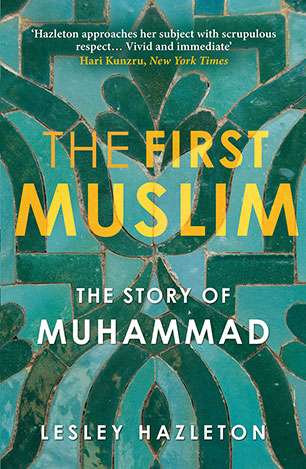
THE FIRST MUSLIM: THE STORY OF MUHAMMAD
By Lesley Hazleton
The extraordinary life of the man who founded Islam, and the world he inhabited and remade. Muhammad's was a life of almost unparalleled historical importance; yet for all the iconic power of his name, the intensely dramatic story of the prophet of Islam is not well known. In The First Muslim, Lesley Hazleton brings him vibrantly to life. Drawing on early eyewitness sources and on history, politics, religion, and psychology, she renders him as a man in full, in all his complexity and vitality.
Hazleton's account follows the arc of Muhammad's rise from powerlessness to power, from anonymity to renown, from insignificance to lasting significance. How did a child shunted to the margins end up revolutionizing his world? How did a merchant come to challenge the established order with a new vision of social justice? How did the pariah hounded out of Mecca turn exile into a new and victorious beginning? How did the outsider become the ultimate insider?
Hazleton's account follows the arc of Muhammad's rise from powerlessness to power, from anonymity to renown, from insignificance to lasting significance. How did a child shunted to the margins end up revolutionizing his world? How did a merchant come to challenge the established order with a new vision of social justice? How did the pariah hounded out of Mecca turn exile into a new and victorious beginning? How did the outsider become the ultimate insider?
EARLY HISTORY
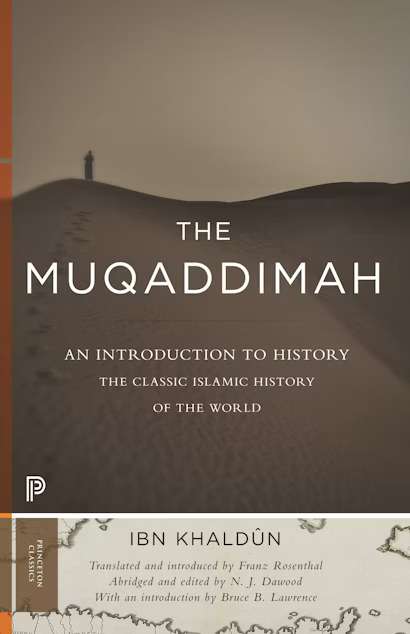
THE MUQADDIMAH - AN INTRODUCTION TO HISTORY
By Ibn Khaldun, Franz Rosenthal (trans.) and N. J. Dawood (ed.)
The Muqaddimah, often translated as “Introduction” or “Prolegomenon,” is the most important Islamic history of the premodern world. Written by the great fourteenth-century Arab scholar Ibn Khaldûn (d. 1406), this monumental work established the foundations of several fields of knowledge, including the philosophy of history, sociology, ethnography, and economics.
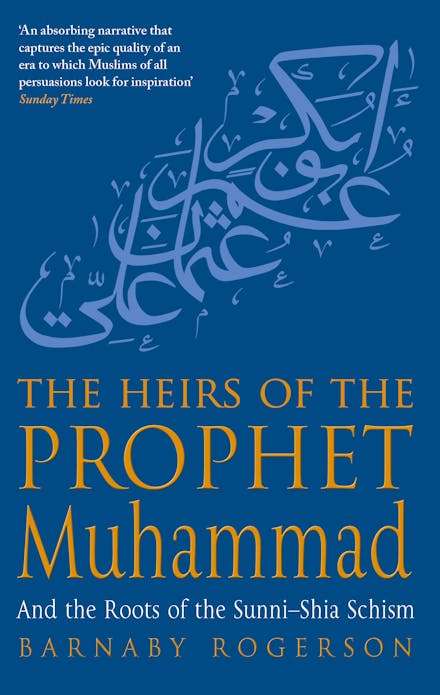
THE HEIRS OF THE PROPHET
By Barnaby Rogerson
The Prophet Muhammad taught the word of God to the Arabs. Within a generation of his death, his followers - as vivid a cast of heroic individuals as history has known - had exploded out of Arabia to confront the two great superpowers of the seventh-century and establish Islam and a new civilization. That the protagonists originated from the small oasis communities of central Arabia gives their adventures, their rivalries, their loves and their achievements an additional vivacity and intimacy. So that on one hand, THE HEIRS OF THE PROPHET MUHAMMAD is a swaggering saga of ambition, immense achievement, self-sacrificing nobility and blood rivalry, while on the other it allows us to understand some of the complexities of our modern world. For within this fifty-year span of conquest and empire- building, Barnaby Rogerson also identifies the seeds of discord that destroyed the unity of Islam, and traces the roots of the schism between Sunni and Shia Muslims to the rivalry of the two individuals who best knew and loved the Prophet: his cousin and son-in-law Ali and his wife Aisha.
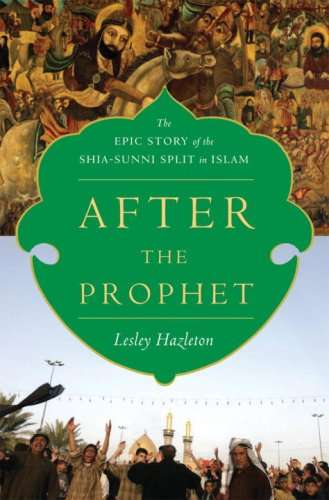
AFTER THE PROPHET: THE EPIC STORY OF THE SHIA-SUNNI SPLIT IN ISLAM
By Lesley Hazleton
In this gripping narrative history, Lesley Hazleton tells the tragic story at the heart of the ongoing rivalry between the Sunni and Shia branches of Islam, a rift that dominates the news now more than ever. Even as Muhammad lay dying, the battle over who would take control of the new Islamic nation had begun, beginning a succession crisis marked by power grabs, assassination, political intrigue, and passionate faith. Soon Islam was embroiled in civil war, pitting its founder's controversial wife Aisha against his son-in-law Ali, and shattering Muhammad’s ideal of unity. Combining meticulous research with compelling storytelling, After the Prophet explores the volatile intersection of religion and politics, psychology and culture, and history and current events. It is an indispensable guide to the depth and power of the Shia–Sunni split.
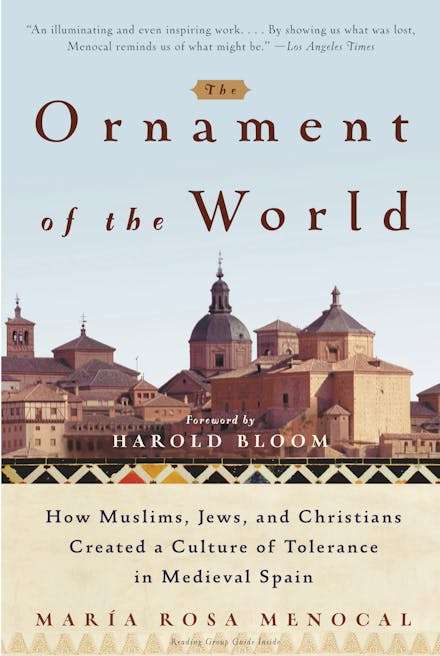
ORNAMENT OF THE WORLD: HOW MUSLIMS, JEWS AND CHRISTIANS CREATED A CULTURE OF TOLERANCE IN MEDIEVAL SPAIN.
By Maria Rosa Menocal
A rich and thriving culture where literature, science and religious tolerance flourished for 700 years is the subject of this enthralling history of medieval Spain.Living side by side in the Andalusian kingdoms, the 'peoples of the book' produced statesmen, poets and philosophers who influenced the rest of Europe in dramatic ways, giving it the first translations of Plato and Aristotle, love songs and secular poetry plus remarkable feats of architecture and technology. This evocative account explores the lost history whose legacy and lessons have a powerful resonance in today's world.
Gender and LGBTQ+
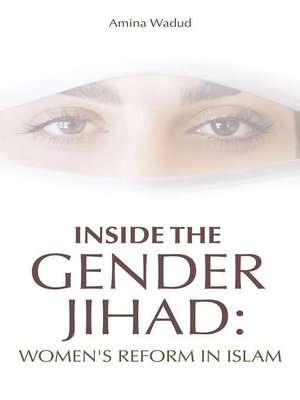
INSIDE THE GENDER JIHAD : WOMEN'S REFORM IN ISLAM
By Amina Wadud
In 2005, Amina Wadud made international headlines when she helped to promote new traditions by leading the Muslim Friday prayer in New York City. In her provocative new book, /Inside the Gender Jihad/, she brings a wealth of experience from the trenches of the jihad to make a passionate argument for gender inclusiveness in the Muslim world. Knitting together scrupulous scholarship with lessons drawn from her own experiences as a woman, she explores the array of issues facing Muslim women today, including social status, education, sexuality, and leadership. A major contribution to the debate on women and Islam, Amina Wadud's vision for changing the status of women within Islam is both revolutionary and urgent..
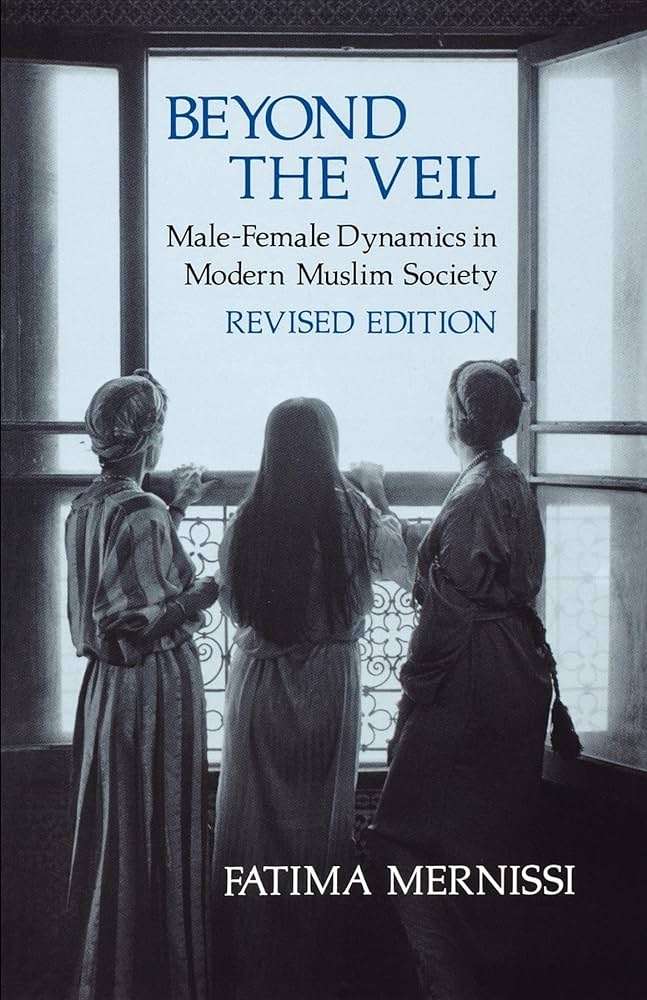
BEYOND THE VEIL, REVISED EDITION : MALE-FEMALE DYNAMICS IN MODERN MUSLIM SOCIETY
By Fatima Mernissi
Required reading... " -Elizabeth Fernea, The University of Texas at Austin. If a reader were to select only one book in order to gain insight into women's status and prospects in Islamic society, this study should be the one chosen for its clarity, honesty, depth of knowledge and thought-provoking qualities." -Arab Book WorldIn this expanded and updated edition, with a new introduction on Muslim women and fundamentalism, Mernissi argues that Islamic fundamentalism is in part a defense against recent changes in sex roles and perceptions of sexual identity.
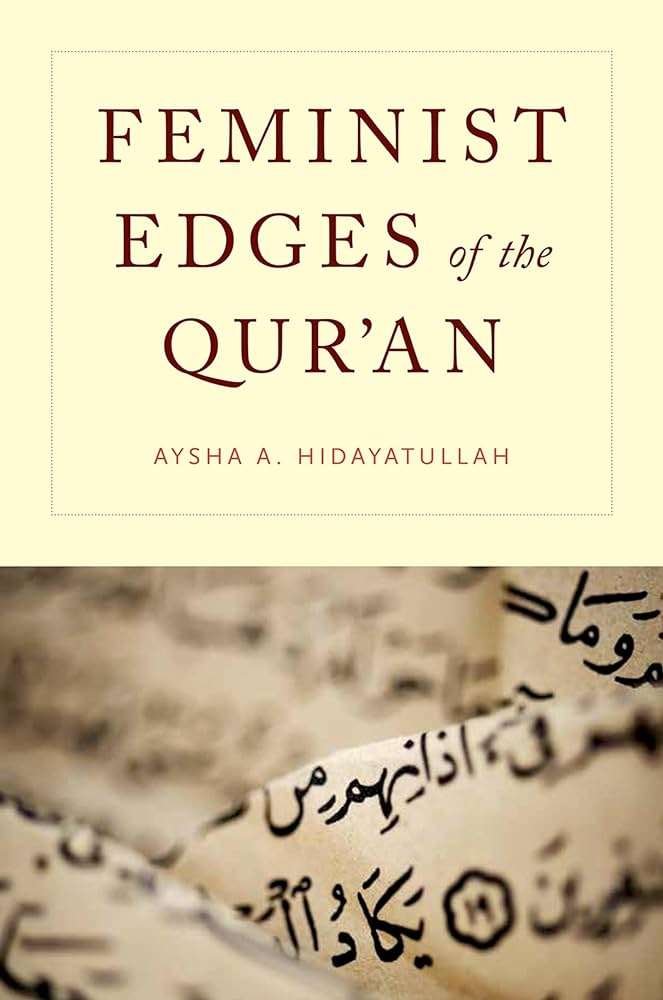
FEMINIST EDGES OF THE QUR'AN
By Aysha A. Hidayatullah
Aysha Hidayatullah presents the first comprehensive analysis of contemporary feminist interpretations of the Quran. Synthesizing prominent feminist readings of the Quran in the United States since the late twentieth century, she provides an essential introduction to this nascent field of Qur'anic scholarship and engages in a deep investigationas well as a radical critique of its methods and approaches. With a particular focus on feminist impasses in the Quranic text, she argues that many feminist interpretations rely on claims about feminist justice that are not fully supported by the text, and she proposes a major revision to their exegetical foundations. A provocative work of Muslim feminist theology, Feminist Edges of the Quran is a vital intervention in urgent conversations about women and the Quran.
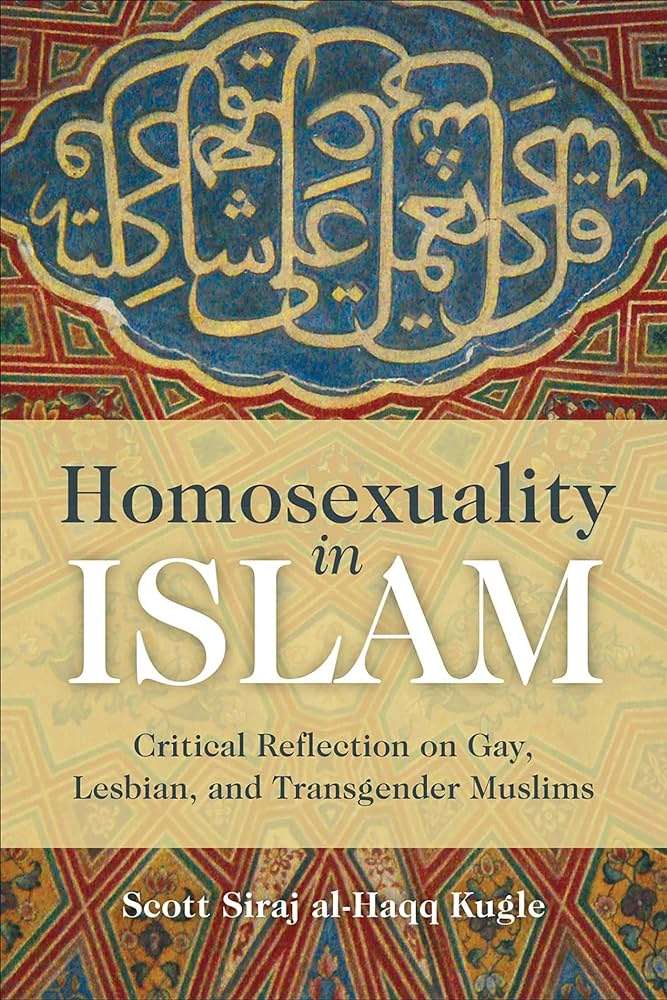
HOMOSEXUALITY IN ISLAM : CRITICAL REFLECTION ON GAY, LESBIAN, AND TRANSGENDER MUSLIMS
By Scott Siraj Al-Haqq Kugle
Homosexuality is anathema to Islam - or so the majority of both believers and non-believers suppose. Throughout the Muslim world, it is met with hostility, where state punishments range from hefty fines to the death penalty. Likewise, numerous scholars and commentators maintain that the Qur'an and Hadith rule unambiguously against same-sex relations. This pioneering study argues that there is far more nuance to the matter than most believe. In its narrative of Lot, the Qur'an could be interpreted as condemning lust rather homosexuality. While some Hadith are fiercely critical of homosexuality, some are far more equivocal. This is the first book length treatment to offer a detailed analysis of how Islamic scripture, jurisprudence, and Hadith, can not only accommodate a sexually sensitive Islam, but actively endorse it.

